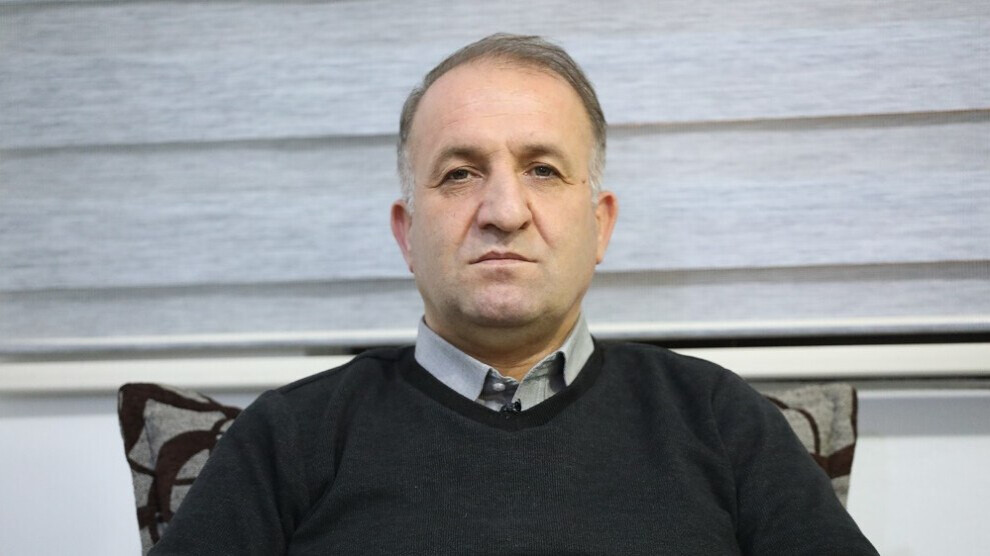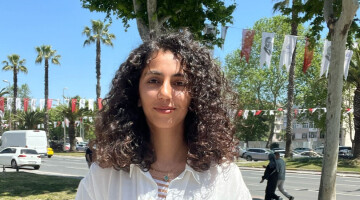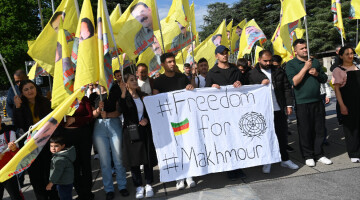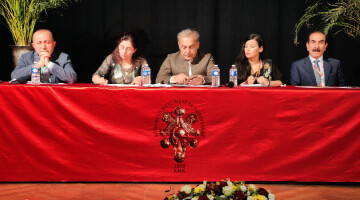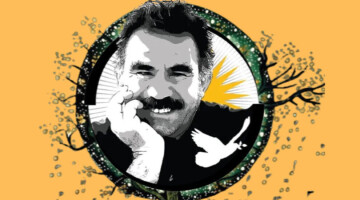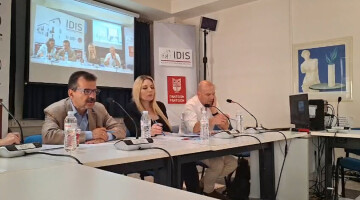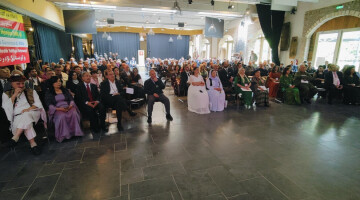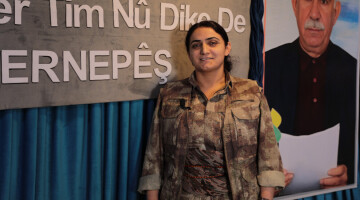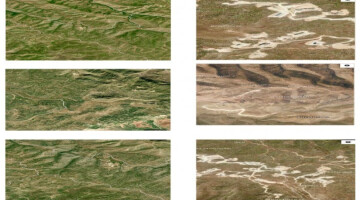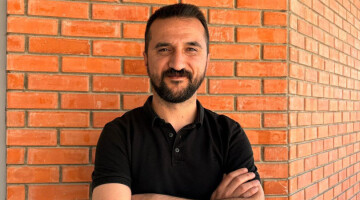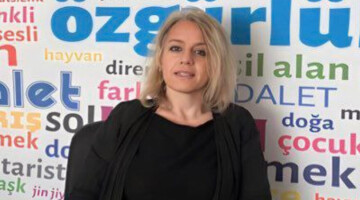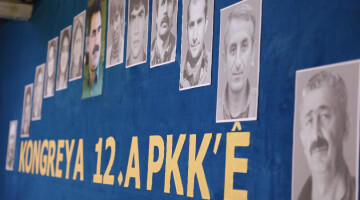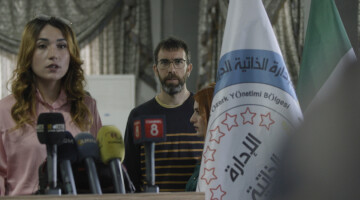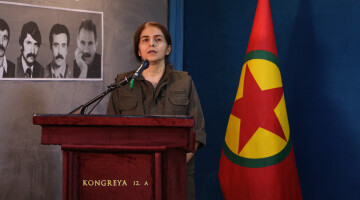Bedran Çiya Kurd, deputy co-chair of the Autonomous Administration Council of North and East Syria, spoke to ANF about the resolution passed by the European Parliament "The Conflict in Syria: Ten Years After the Uprising", the joint meeting between Qatar,Turkey and Russia, developments in Idlib and the recent relocation of the Turkish army to Syria.
In a resolution, the European Parliament recognized the Turkish presence in Syria as an occupation and called on Turkey to withdraw its troops. Can there be any new developments regarding a withdrawal in the foreseeable future?
The position of the European Parliament is correct and we support it. We see the resolution as a positive stance towards a solution to the Syria crisis and we want it to be put into practice. Work must be done to end the occupation and the human rights violations. The occupation of parts of the country is preventing a solution to the crisis in Syria. As long as parts of the country are occupied and there is a massive troop presence, no political solution can be achieved. A political solution presupposes an end to the occupation. That should be used as a basis and work towards it should be carried out. We believe that the occupation will come to an end if it this is wanted and decided at an international level. However, certain sides do not position themselves clearly because of their interest. As a result, the occupation in Syria can become permanent while the crisis deepens. Those who suffer from this are the peoples of Syria.
The EU Parliament has designated the Syrian Democratic Forces (SDF) as an ally. Can we imagine that the status of the Autonomous Administration will also be recognized in the near future?
The international coalition against ISIS is composed of 79 countries and institutions and has recognized the SDF as an alliance partner. A joint fight against terrorism has been going on for five years. From a military point of view, this has made important advances. In order for this progress to last, however, there must finally also be political recognition. The political dialogue with the Autonomous Administration must finally begin. Without political recognition, there can be no lasting political stability in the region. The Autonomous Administration must be recognized as the political and administrative leadership that it is, so that progress in the fight against terrorism is maintained. It must be seen as an official representative. That's what we're fighting for. For political recognition: For this we are having a dialogue with the coalition countries. We want to ensure that the Autonomous Administration of North and East Syria is perceived as a political point of contact.
On 11 March, a meeting between Turkey, Russia and Qatar took place in Qatar. How is this meeting affecting Syria?
The efforts of Turkey and Russia against the Arab countries are not a new thing. After Geneva and Astana failed to produce results, they had to revise their policies and methods. The US and Israel have put pressure on Turkey and Russia to remove Iran from the Astana format. Instead, some Arab states should be added to this mechanism, most notably Qatar as a country that supports political Islam. Qatar has been funding "opposition" groups all along the war in Syria. Even the emergence of political Islam groups within Syria is funded by Qatar. These groups should benefit once again from Qatar's funding.
Russia continues to support the Syrian regime because serious economic and social crises are taking place in the areas controlled by Damascus. Russia ensures that the regime stays on its feet and does not disappear. This requires economic support. It has been decided to use funds from Qatar to reach areas in Syria. So it was about saving the regime, but once again a position was taken against the Autonomous Administration and the democratic project in Northern and Eastern Syria. In our opinion, such an attitude and policy are no longer acceptable. It has once again been shown that the alliance between these three sides is not geared towards the interests of the population and a solution to the Syria crisis, but rather towards Qatar's money.
They want to keep raising the mood against the Autonomous Administration and incite Arabs in the self-governed areas. This alliance does not serve the interests of the people of Syria and we must fight against it. As long as there is no agreement in the whole country and the states involved do not reach a consensus, the problem in Syria will not be easy to solve.
Despite the Sochi Agreement, fighting is ongoing in Idlib and other areas controlled by the Turkish state. Do you see the possibility of a war between Turkey and Russia or the Syrian regime in Idlib and other occupied areas?
The Sochi Agreement has existed since 2018. It defines the areas in which Turkey is present. It was determined which group stays where and which places the should have left. It also established that the international road between Aleppo and Damascus and between Aleppo and Latakia is controlled by Russia and the Syrian regime. Somehow, Russia and Turkey want to stick to it, but other sides - the Syrian regime, Iran, even some radical groups supported by the Turkish state - want to destroy this alliance. From time to time fighting does occur that might give the impression that the alliance between Turkey and Russia is in jeopardy, but our observations show that it is in fact, increasingly developing. Some economic agreements have been reached recently. This indicates that no territorial war will break out between Russia and Turkey. The probability is very low or even zero. It doesn't look like it. Both sides are trying to find political and diplomatic solutions. Given this background, Turkey and Russia are also entering into alliances with Arab countries such as Qatar. New agreements and mechanisms are emerging, supposedly for a solution to the Syria crisis.
The Turkish army deployed large contingents of troops to Syria on the anniversary of the beginning of the war here. Some sources say that this is the largest deployment of troops to date. What do you think this means?
The Turkish state wants to make its occupation permanent; this applies to all occupied territories. There is no withdrawal sign. It is claimed that the Turkish presence in Syria will ensure stability and the return of the refugees. That's a lie. The Turkish state is in favour of an occupation in Syria. It is well known which dreams and projects the Turkish state is pursuing in the Middle East.
Turkey not only occupied Syria, but also an important part of Iraq. Ankara is sending troops to Libya and Azerbaijan in a dream to redraw the “Misak-ı Milli” borders. It acts according to its dream of the Ottoman Empire and reorganizes itself in the Middle East accordingly. Therefore, the troops transferred to Idlib and to the west of Aleppo show that the occupation, with the bases established in Serêkaniyê and Girê Spî, aims at being permanent. The Turkish state installs an administrative system in the areas it occupies. Its actions in areas such as education and trade are also signs that Ankara wants to settle permanently. There is nothing to suggest that it will withdraw in a year or two. That must be taken into account and we must not be silent about it. If the world is silent and the peoples of Syria do not fight against the occupation, the occupation of the Turkish state will become permanent.

